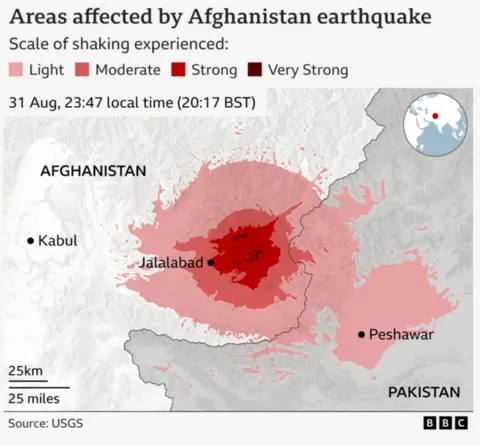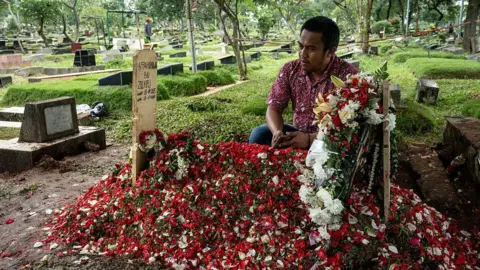Eighty years have passed since the horrific events at the Bergen-Belsen concentration camp were revealed to the world, with survivors and families uniting to remember the atrocities committed during the Holocaust. With the liberation taking place in April 1945, British and Canadian troops entered the camp, uncovering the relentless suffering faced by thousands of inmates, most of whom were Jews. They encountered a shocking scene: approximately 13,000 unburied bodies and around 60,000 survivors in dire states of emaciation and sickness.
To honor this profound moment in history, over a thousand survivors, their families, and dignitaries participated in remembrance activities at the site on Sunday. One British soldier who witnessed the aftermath, Michael Bentine, later described Bergen-Belsen as "the ultimate blasphemy." His sentiments were echoed by others who struggled to articulate the gut-wrenching scenes that confronted them.
Pioneering broadcaster Richard Dimbleby was among the first to report from the camp after its liberation, stating that day was the “most horrible” of his life. Unlike many other Nazi camps that were destroyed in an attempt to hide their crimes, Bergen-Belsen remained hauntingly intact, with both victims and perpetrators present on the scene.
The consequences of years of overcrowding and neglect at Bergen-Belsen led to rampant epidemics of dysentery and typhus, causing up to 500 deaths per day, particularly in the final weeks of the war when the camp was overflowing with prisoners from other camps. Notably, Anne Frank and her sister Margot were among those who perished in the chaos.
Despite the liberation, the aftermath was devastating, with tens of thousands succumbing to starvation and illness, including around 14,000 who died shortly after being freed. The humanitarian efforts made by medical teams, although well-intentioned, sometimes resulted in further fatalities due to the inmates' compromised health conditions.
Among the attendees at this poignant commemoration are 180 British Jews, facilitated by Ajex, the Jewish Military Association. Greeted with wreath-laying ceremonies and readings from scriptures by UK Chief Rabbi Sir Ephraim Mirvis, the event unfolded amidst a changed landscape. The marks of the camp itself have largely been erased, with the decision made to incinerate the dilapidated huts to contain disease.
Today, visitors can find a single visitor center and scattered memorial stones, such as one etched with "Hier ruhen 5,000 toten" (here rest 5,000 dead), which serve as the remaining reminders of the haunting legacy of Bergen-Belsen.





















